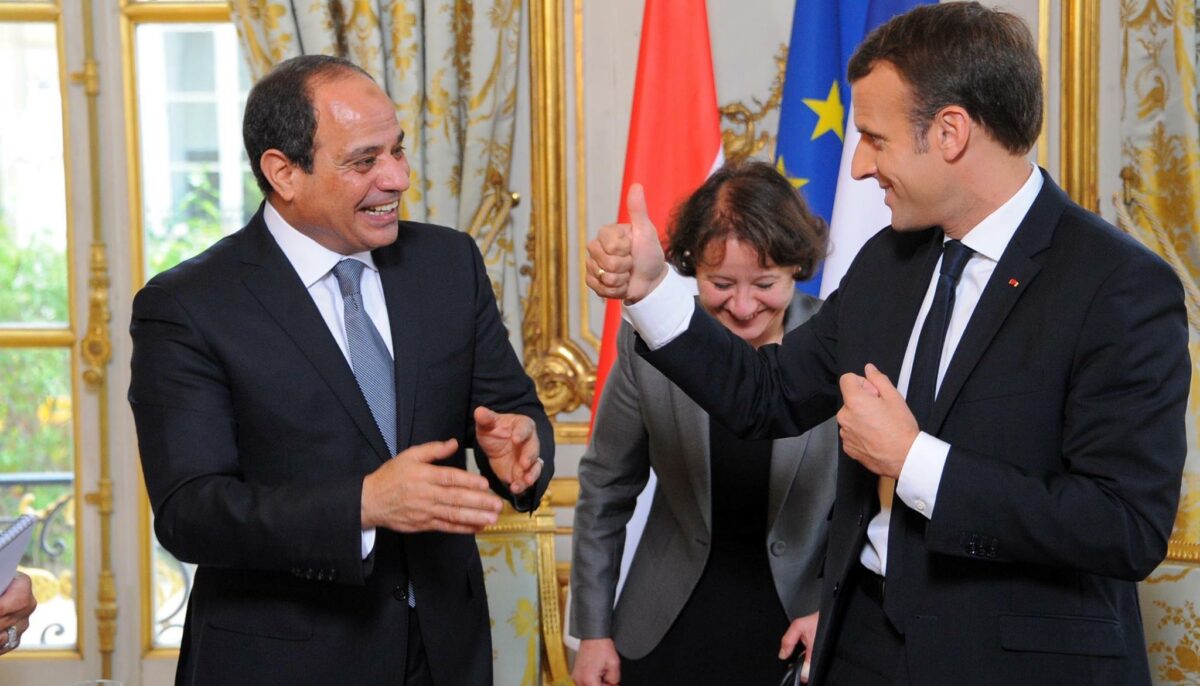The administration of Egyptian president Abdel Fattah el-Sisi bought surveillance technologies from the French cybersecurity company Ercom in 2014, according to a report published on March 26 by the French weekly magazine Télérama. The purchase, which was approved by the French government, increases threats to Egyptians’ rights to private communications and correspondence, and puts the safety of their personal data in jeopardy.
Created in 1986, Ercom works in the fields of telecom, cryptography, software infrastructure, and security. Among Ercom’s main clients in France are the Ministry of Defense, the Ministry of Foreign Affairs, and the presidency.
While most of the relevant information regarding this deal is classified, the report, which cites several anonymous sources, revealed that Ercom provided Egypt with communication interception tools, codenamed “Vortex,” and software to store and process information, codenamed “Cortex.” Vortex and Cortex could serve as “effective weapons in muzzling dissident voices,” according to the report. They enable the Egyptian military intelligence “to intercept calls, SMS, survey internet traffic or geolocate a target.”
Eight months ago, the same publication revealed that in March 2014 the el-Sisi regime also bought surveillance technologies from the French company Nexa, a subsidiary of Groupe Bull. Formerly known as Amesys, Nexa changed its name after it was discovered that it sold communication surveillance equipment to Libya’s ex-president Muammar Gaddafi, making it complicit in human rights abuses.
These revelations come at a time when the European Union has been taking measures to restrict the export of surveillance equipment to countries with poor human rights records. The members of the European Parliament voted on including such restrictions in EU export controls last January, after it was revealed that the UK has been selling sophisticated spying tools to Macedonia. Moreover, the European Parliament has, on several occasions, called on its member countries to put an end to exporting dual-use technologies, which could serve for civilian and/or military purposes, to Egypt, most recently after the researcher Giulio Regeni was killed on January 25, 2016.
According to Human Rights Watch, the Egyptian government maintains “a zero-tolerance policy towards dissent,” with its crackdown on the work of non-governmental organizations, freedom of expression and assembly, freedom of association, and freedom of the press.
Moreover, Egypt witnessed an increase in death penalties, while security forces repeatedly take part in abuses and arbitrary arrests and detentions under the pretext of fighting terrorism, and crackdown on civil liberties, namely prosecuting the LGBTQ+ community. Egypt has also isolated its North Sinai from the world through internet and telecom services shutdowns.


